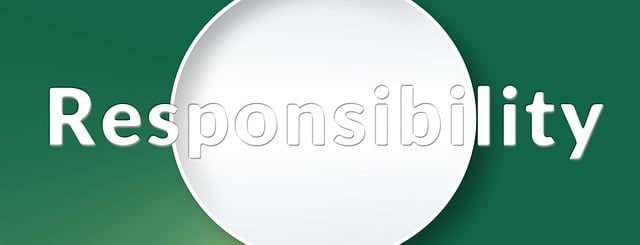Secured Debt Consolidation: Lower Costs, Better Credit, Secure Future

Secured debt consolidation offers lower monthly payments, fixed interest rates, and simplified repay…….
In today’s complex financial landscape, managing multiple debts can be a daunting task for individuals and businesses alike. Secured debt consolidation offers a strategic solution to simplify this process by combining several loans into a single, more manageable one. This article aims to provide an extensive guide to secured debt consolidation options, exploring its definition, global impact, economic implications, technological innovations, regulatory framework, challenges, successful case studies, and future prospects. By delving into these aspects, readers will gain valuable insights into this powerful financial tool and its role in shaping the global economic system.
Secured debt consolidation is a financial strategy where an individual or entity takes out a new loan to pay off multiple existing debts. The key characteristic is that the new loan is secured against a specific asset, typically real estate or personal property. This security provides comfort to lenders as it offers a safety net in case of default.
Core Components:
The concept of debt consolidation has evolved over centuries, reflecting the changing financial needs of societies. Historically, early forms of debt consolidation were used by governments to manage large public debts after wars or economic crises. With the rise of consumer credit in the 20th century, individual debt consolidation gained popularity as a way for consumers to gain control over their finances.
In recent years, secured debt consolidation options have become increasingly sophisticated, leveraging advanced data analytics and digital platforms to match borrowers with suitable lenders. This evolution has made it more accessible to individuals seeking financial relief and better management of their debt obligations.
Secured debt consolidation options have a significant global reach, impacting economies worldwide. The adoption and success of this practice vary across regions due to differing economic conditions, cultural attitudes towards debt, and regulatory environments.
Regional Differences:
| Region | Impact and Trends |
|---|---|
| North America | Leading in personal debt management, with many financial institutions offering consolidated loan products. The COVID-19 pandemic has increased interest in debt consolidation as a way to manage rising consumer debt. |
| Europe | Strict regulatory frameworks have shaped the market, favoring home equity loans for consolidation. Post-Brexit economic challenges have spurred an interest in strategic debt management. |
| Asia Pacific | Rapidly growing economies are witnessing a rise in secured debt consolidation, driven by increasing personal lending and complex financial products. |
| Middle East & Africa | Emerging markets in these regions show rising demand for consolidation loans due to expanding financial inclusion and changing consumer behaviors. |
The global impact of secured debt consolidation options is evident in several economic aspects:
The secured debt consolidation market operates within a dynamic ecosystem:
Secured debt consolidation plays a vital role in economic systems by:
Technological progress has revolutionized secured debt consolidation options:
The integration of technology has brought about:
The regulatory framework surrounding secured debt consolidation options varies across jurisdictions:
Key policies and regulations include:
Despite its benefits, secured debt consolidation options face several challenges:
To address these issues:
The following case studies illustrate successful implementations of secured debt consolidation options:
Case Study 1: Homeowners’ Relief in the US
A leading US bank offered a home equity loan consolidation program targeting homeowners burdened by multiple high-interest loans. By securing the new loan against their property, borrowers could access lower rates and simplify payments. This initiative resulted in improved financial health for participants and positive reviews, showcasing the potential of consolidation to alleviate consumer debt.
Case Study 2: Student Loan Consolidation in Canada
Canadian students facing a maze of private loans and high-interest rates benefited from a government-backed student loan consolidation program. This initiative simplified repayments and reduced overall borrowing costs, demonstrating the positive impact on younger borrowers’ financial well-being.
The secured debt consolidation market is poised for further growth and innovation:
To capitalize on future opportunities:
Secured debt consolidation options represent a powerful financial tool with significant global reach and impact. By understanding its definition, historical context, economic implications, technological advancements, regulatory landscape, challenges, and case studies, we gain insights into its potential to transform individual and business financial management. As the market continues to evolve, lenders and borrowers alike can navigate the future of debt consolidation with confidence, embracing emerging trends while addressing the challenges that lie ahead.
Q: What is secured debt consolidation, and how does it differ from unsecured debt consolidation?
A: Secured debt consolidation involves using an asset as collateral for a new loan to pay off multiple debts. Unsecured consolidation, in contrast, doesn’t require collateral but may have higher interest rates and stricter borrowing criteria.
Q: Are there any risks associated with secured debt consolidation?
A: While it offers benefits, there are risks. Collateral loss is a potential consequence of default. Borrowers should understand the risk and ensure they can comfortably manage the consolidated loan repayments.
Q: How do I know if debt consolidation is right for me?
A: Evaluate your financial situation, including income, existing debts, and assets. If multiple debts are stressing you out, consolidation could help. However, it’s crucial to compare options and consider long-term implications.
Q: Can secured debt consolidation improve my credit score?
A: Properly managed consolidation can positively impact your credit score by reducing debt-to-income ratios and simplifying payments. Timely repayments are essential to maintaining or improving your credit standing.
Q: What should I consider when choosing a lender for debt consolidation?
A: Research lenders’ reputation, interest rates, fees, and terms. Compare offers and choose a lender with transparent practices and a track record of customer satisfaction.

Secured debt consolidation offers lower monthly payments, fixed interest rates, and simplified repay…….